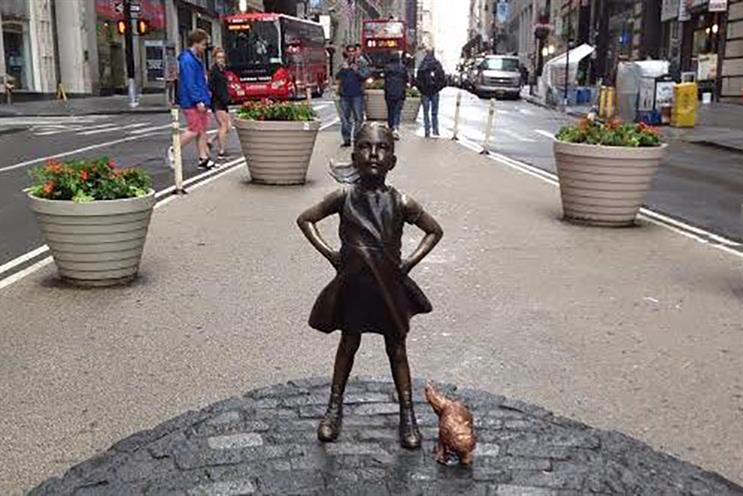I am a big fan of campaigns that carry a strong, genuine sense of social purpose.
We’ve seen some great examples in recent years too. Just look at the success of "Fearless Girl" (pictured) for instance, although there are many more.
It’s important for brands to stand for something more than profit – and not just for the obvious reason.
Those that do outperform those that just sell, sell, sell.
We’re in store for some great creative work this week in Cannes, but how much will be purpose-driven?
When we talk about purpose, it’s easy to dismiss it as something that only lives only in fuzzy planner-land. That would be a mistake though. It can be central to efficacy and growth.
Companies such as Unilever, with its , show that sustainable products are more popular with consumers (it’s growing 50% faster than the rest of the business).
As more companies do this, and as the social perspective of people shifts, we can see a disconnect: 75% of consumers expect brands to make more of a contribution to our wellbeing and quality of life.
Only 40% think they currently do, according to the Havas Meaningful Brands Survey 2017.
If you’re wondering why this matters so much: 89% of consumers would switch to brands associated with good, as the Cone Communications CSR Study found last year.
It’s not just financial benefit though. Purpose boosts stakeholder morale and shows you as a better employer. But if you’re going to say it, make sure you do it.
I was a little surprised to see that more than half of workers say their company’s purpose marketing does not reflect reality.
This perceived hypocrisy makes almost half of people want to leave their company and 68% said it would have a negative impact on their work, causing distrust in leaders and reduced productivity.
These disconnects change the nature of our agency relationship with clients.
We often want to build the big, beautiful, purposeful campaigns, but if the client can’t live them, there could be a high price to pay. We need to do the right thing when advising our clients.
What we have seen through the years is that organisations can build up a "Karma Bank". Good work not only helps proactively, it also acts as an airbag for any unforeseen negative events.
I like Larry Fink’s letter, to chief executives on behalf of BlackRock. In it, he says: "Without a sense of purpose, no company, either public or private, can achieve its full potential. It will ultimately lose the license to operate from key stakeholders."
And, "to prosper over time every company must not only deliver financial performance, but also show how it makes a positive contribution to society."
Building a connected, purpose-driven experience isn’t easy, especially amid numerous cries for transparency.
Digitally native, savvy consumers can "see around" brands like never before and this changes their expectations – both of what they buy from you and for how you behave in the world.
Bringing us back to Cannes Lions. When we look at most campaigns, they are traditionally judged on their ‘big idea’. This is a great celebration of our craft. But the stuff that’s really valuable is tying it into a complete experience.
Fjord’s, for instance, shows that businesses which lead on experience, not just high-level messaging, have the edge over their rivals.
Brand purpose is a vital part of acting responsibly. Living up to what you commit to publicly is also a must. We’re not just saying it because it’s the right thing to do, which it is. Or because customers love it, which they do.
But what goes around comes around… and it turns out that being responsible and accountable actually makes you more profitable too.
Jon Wilkins is executive chairman of Karmarama, a subsidiary of Accenture Interactive


